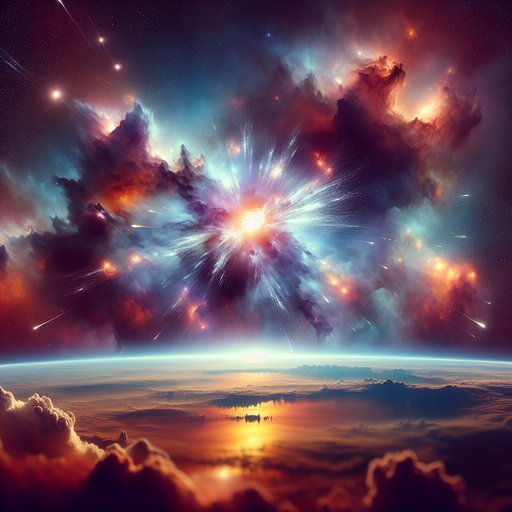
A recent cosmic discovery has taken the astronomical community by storm as scientists have observed a never-before-seen type of colossal space explosion – the most powerful since the Big Bang itself. This unexpected find provides a gripping glimpse into the universe's explosive past and its formative forces, challenging existing theories and inspiring new lines of inquiry into the cosmic phenomena that shape distant galaxies.[3]
Accidently captured during a survey of the far reaches of the universe, this explosive event has left astronomers and cosmologists both awestruck and intrigued by its magnitude and implications. Although mankind’s previous favors were the enormous cataclysms of neutron stars colliding or black holes merging, these newly detected outbursts dwarf these phenomena in terms of energy released.[1] Such potent explosions could unearth hidden secrets of the cosmos’s early architecture.[1]
Scientists are now racing to uncover the mechanics behind this astronomical event and its potential triggers. Preliminary analysis suggests that interactions between dark matter and ordinary baryonic matter may have fuelled these gargantuan explosions. Understanding such interactions is paramount to refining models of universe formation, making this discovery a critical piece in the cosmic puzzle.[1]
The far-reaching implications extend beyond theoretical intrigue, urging a re-examination of how we interpret cosmic events and their influence on galactic evolution.
Previous models have underestimated the dynamic processes that can lead to such high-energy phenomena. As new data pours in, astronomers eagerly anticipate recalibrating their understanding of universe dynamics.[1]
For the broader public, these latest discoveries remind us of the universe's magnificence and complexity. Keeping the spirit of discovery alive, science continues to illuminate pathways once shrouded in darkness, bringing us closer to unraveling the enigmatic tapestry that is our universe. The forthcoming publications and discussions promise to reshape key aspects of cosmology and perhaps lead to more profound insights into the creation of galaxies and stars as we know them.[1]
Sources
- Astronomers Just Discovered The Biggest Explosions Since The Big Bang (ScienceAlert, 2025-06-06)
























